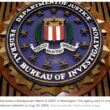Broken promises
In January, a young Nebraska couple — both in their 20s — died in a snowstorm after dispatchers couldn’t locate them, even though the couple called 911 five times from their wireless phone. Two months later, a Chicago woman allegedly was kidnapped by her ex-boyfriend, stuffed into a car trunk and driven around the city for a couple of hours. She eventually escaped. One month later, a 19-year-old Elgin, Ill., man allegedly was robbed at gunpoint and also stuffed into a car trunk. He wasn’t as fortunate, as police later found him dead.
In each case, the victims called 911 from their mobile phones. And in all instances, PSAPs were unable to pinpoint their location. The failure of the PSAPs to locate the callers so alarmed Chicago’s Office of Emergency Management and Communications that it conducted random tests to determine the severity of the problem. “What we found out was disappointing,” Ron Huberman, the office’s executive director, told the Chicago Sun-Times.
This is nothing new — such incidents have been occurring for more than a decade. It’s why the FCC issued its Phase 2 mandate, which requires commercial wireless carriers and PSAPs to locate callers who make emergency 911 calls from their wireless handsets. It’s also why the PSAP community has fought hard to get federal funding to help bring the nation’s roughly 5400 PSAPs into compliance.
The long and difficult battle finally was won in December 2004, when President Bush signed telecom legislation that calls for PSAPs to receive up to $250 million annually over the next five years for the upgrades — or so we thought. The call-center community discovered in June that there is a big difference between authoring grant monies and actually appropriating them, when a legislative aide to Rep. John Shimkus (R-Ill.) told attendees of the NENA Conference in Long Beach that they should expect no more than $8 million this year and $20 million next year.
NENA executives were disappointed by the news, and who could blame them? It’s unfathomable to think that Congress couldn’t find $250 million in a $2.5 trillion federal budget. The excuse is that the legislation was signed too late to make it into this year’s budget. I wonder what next year’s excuse will be.
An important lesson I have learned is this: Make promises you can keep, and keep the promises you make. It’s a shame our elected officials haven’t learned this lesson. Less than half of the nation’s PSAPs are Phase 2-compliant. Worse, about 30% aren’t even Phase 1-compliant. (Phase I requires call centers to receive the wireless callback number and identify the cell tower that handled the call.) People have died because they couldn’t be located, and more are going to die. Congress needs to honor the promise it made.

















